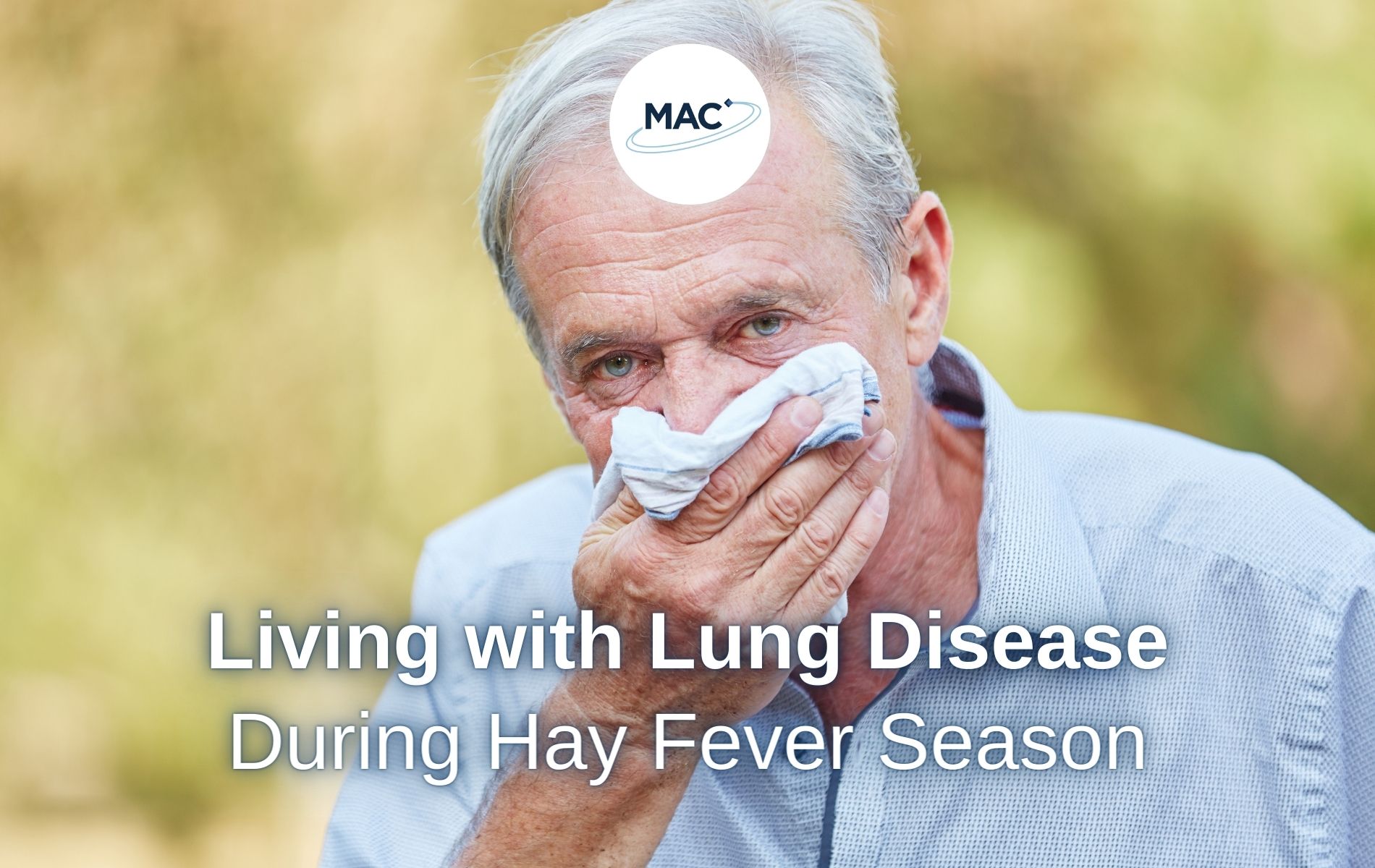The days are getting longer, the sun is shining, Spring is upon us, and Summer is approaching… that can only mean one thing: hay fever season. This time of year can be trouble for anyone, but for those living with lung diseases, it can be a risk to their health.
Chronic obstructive pulmonary disease (COPD) and idiopathic pulmonary fibrosis (IPF) are examples of lung conditions which can exacerbate during hay fever season.
Hay fever is a common allergic reaction to pollen, and it is at its worst through March and September, especially when the weather is warm, humid, and windy.
COPD is a chronic lung disease that affects approximately 1.17 million people in England, which is around 1.9% of the population. It’s characterized by breathing difficulties and coughing. Another condition, IPF, is a rare and progressive lung disease that causes the lung tissue to become thick, stiff, and scarred over time, leading to breathing difficulties and respiratory failure. It is estimated that around 30,000 people in the UK live with IPF and over 5,000 fatalities are reported every year from the condition.
During hay fever season, people with COPD and IPF need to be extra careful to avoid pollen exposure, which can exacerbate their symptoms and lead to respiratory distress, also known as a flare-up. In order to help those living with COPD and IPF manage these symptoms and avoid flare-ups during this time of the year, we wanted to share our tips on how best to cope with hay fever and lung disease.
- Stay indoors – During peak pollen times, it is best to stay indoors, especially in the early morning and late afternoon when pollen counts are highest. Keep windows and doors closed and use air conditioning where possible to filter the air. It is helpful to check the weather forecast, air quality and pollen count to enable you to better plan if you do need to go outside.
- Wear a mask – If you need to go outside, wear a medical mask to protect yourself from pollen.

- Take medication out with you – Always make sure you’re taking enough medication (such as inhalers) out with you when leaving home to ensure that you’re prepared for any hay fever-induced flare-ups.
- Stay hydrated – Drinking plenty of water can help to thin mucus and make it easier to cough up, reducing the risk of respiratory infections brought on by high pollen counts and hay fever.
- Seek medical attention – If you experience severe COPD or IPF exacerbations, such as shortness of breath, chest pain, or a persistent cough, seek medical attention.
With proper management and care, you can reduce your risk of COPD or IPF exacerbations caused by hay fever and improve your quality of life. There is currently no cure for COPD or IPF, however you may hold the key to new treatment options and could help medical researchers test new treatments.
MAC Clinical Research are currently looking for volunteers with COPD and IPF to take part in the latest clinical research, which aims to improve the quality of life for those living with these debilitating conditions.
The clinical trials are running at several MAC Clinical Research clinics primarily across the north of England. Eligible participants for the trials will receive reimbursement for their time and commitment to the trial, travel expenses as well as a full medical check-up.
For more information on either of the trials, please visit our IPF Clinical Trials webpage or our COPD Clinical Trials webpage.




